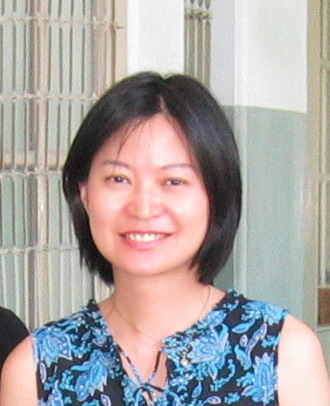第四十七卷 第ㄧ期 總460 中華民國107年3月
Vol.47 No.1 March 2018

《中外文學》三月號收錄了五篇精彩的學術論文:曾瑞華透過紀傑克(Slavoj Žižek)論諾斯底主義與資本主義的觀點閱讀迪克(Philip K. Dick)的架空歷史小說《高堡奇人》(The Man in the High Castle),指出儘管作者欲擺脫卑劣的物質世界,並臻於完美的靈知世界,但仍無法脫困於資本主義體制;黃士元以卡夫卡(Franz Kafka)的短篇故事〈一家之主的憂慮〉(“Die Sorge des Hausvaters”)為例,反思如何重新看待物的世界、人與物的存在及其所共處的環境,並藉由班雅明(Walter Benjamin)對卡夫卡的閱讀,探討物與人之間的關係,以及生命在反轉為物之後,能產生何種新的生命面向;吳慧娟解析顧玉玲兩部關於台灣東南亞移工敘事作品——《我們》與《回家》——中的殘障再現政治,認為其作不僅批判了資本主義社會對健全能力意識形態的固著,更從身體做為個人生命經驗和身分認同的物質基礎來重新詮釋全球化和亞洲現代性;關秀惠由《集中營回憶展》(Mémoire des camps)展出的四張照片引起之爭議為起點,探究攝影如何成為事件見證之物,及其內含的影像辯證性意義;陳敏華和崔峰則分析「組屋」此一新加坡特有的華文譯詞在新加坡公共住屋歷史發展過程之演變,及其在新加坡社會發展過程被賦予之特定社會屬性和意識形態。另外,《中外文學》自2018年起,由臺大外文系廖勇超副教授接任總編輯,除了繼續控管期刊學術品質,也期待能帶給讀者更多學術趣味。
中外文學三月號目錄
Contents
編輯室報告
Editorial Note
- 廖勇超╱編輯室報告
Yung-chao Liao╱Editorial Note
曾瑞華╱從文物真品收藏到文創商品行銷:歷史文物的產業化進程──從《高堡奇人》中的二元思維與資本主義邏輯談起
從文物真品收藏到文創商品行銷
歷史文物的產業化進程──從《高堡奇人》中的二元思維與資本主義邏輯談起
曾瑞華*
摘要
本文透過紀傑克論諾斯底主義與資本主義的觀點閱讀迪克的架空歷史小說《高堡奇人》。透過小說中架空歷史的敘事結構與文物收藏的故事情節,本文指出,儘管作者原本企圖藉由對虛實的顛覆與對文創複製商品的抗拒擺脫卑劣的物質世界,以臻至完美的靈知世界,其對真實的執著(一如其明顯可見的諾斯底主義色彩)不僅沒有讓他更接近真實的理想世界,反而讓他因僵固化(或物化)的價值理念更進一步地深陷於虛幻的觀念迷宮──或即紀傑克理論中所描述的最具法西斯主義色彩的利比多轉化機制:資本主義體制。例如,儘管從事歷史文物與原創手工藝品買賣的契爾丹先生反對在開模量產文創商品的產銷過程中,原創的美國手工藝品只能做量產商品的模子,對於資本主義抹殺原創真品價值的運作更是強烈不滿,其對原創真品的看重事實上仍是與資本主義商品區隔的運作邏輯互嵌的。基於此,他所拒絕量產的文創商品不僅不會消失,反而得以藉由其所值的價格流通市場,間接鞏固他所批判的資本/重利主義。全文共分四節,首節論證小說中的二元思維與諾斯底主義色彩,次節闡述紀傑克有關諾斯底二元思維與資本主義發展邏輯的論述,第三節從小說中與文物收藏及交易有關的細節探討真品收藏與資本主義運作邏輯的相關性,並藉以反思當代社會中商品化歷史文物充斥的現況,末節則從紀傑克的觀點探討如何以更有建設性的態度面對歷史文物的產業化過程。
◎關鍵詞:歷史文物,文化生產,諾斯底主義,資本主義,《高堡奇人》,不作為
★國立臺東大學英美語文學系副教授。
Laurie Jui-hua Tseng╱From Historical Objects Collection to Cultural and Creative Commodities Marketing: Exploring Dualism and the Capitalistic Logic in The Man in the High Castle
From Historical Objects Collection to Cultural and Creative Commodities Marketing
Exploring Dualism and the Capitalistic Logic in The Man in the High Castle
Laurie Jui-hua Tseng*
Abstract
This article explores the dualism and capitalistic logic inherent in Philip K. Dick’s alternative history novel The Man in the High Castle by using Slavoj Žižek’s theory on Gnosticism and capitalistic logic. Through an analysis (based on Žižek’s critique on the dualism of Gnosticism) of the futile resistance to the industrialization of the historical objects in the novel, this article, by revealing the conceptual trap of dualism, explains why the author, in spite of his attempt to pursue the immaterial gnosis absent from the present world, still fails to disengage himself from the material world he thought he would be disengaged from. The article comprises of four sections. The first section uncovers the dualistic order and the Gnostic element of the novel. The second section explores Žižek’s view on Gnosticism and its affinity with the operation of capitalism. The third section examines capitalism as the fundamental structure which not only underlies the development of the novel, especially the part involving historical objects collection and exchange, but also dominates the development of our contemporary society where historical objects are driven to be commercialized. Finally, on the basis of Žižek’s theory of non-action the last section attempts to propose a way to confront the capitalization of historical objects better than Dick’s Gnostic approach.
◎Keywords: historical objects, cultural production, Gnosticism, capitalism, The Man in the High Castle, non-action
★Associate Professor, Department of English, National Taitung University.
黃士元╱人與物的世界:從班雅明閱讀卡夫卡的短篇故事〈一家之主的憂慮〉談起
人與物的世界
從班雅明閱讀卡夫卡的短篇故事〈一家之主的憂慮〉談起
黃士元*
摘要
最後,本文將藉由班雅明〈神學-政治片斷〉(“Theologisch-politisches Fragment”)中所談到世俗秩序下的彌賽亞,討論班雅明在卡夫卡作品裡所看到的救贖,是將生命或存在蛻變為書寫與閱讀的文本之物。也就是在不斷閱讀,詮釋與再書寫下,開始了延續與新生的可能性。
◎關鍵詞:班雅明,卡夫卡,罪,法律暴力,變形,遺忘,彌賽亞
★文藻外語大學德國語文學系副教授。
Shih-yen Huang╱ The World of the Human and the Thing: On Walter Benjamin’s Reading of Kafka’s “The Cares of a Family Man”
The World of the Human and the Thing
On Walter Benjamin’s Reading of Kafka’s “The Cares of a Family Man”
Shih-yen Huang*
Abstract
◎Keywords: Walter Benjamin, Franz Kafka, sin, violence of law, distortion, oblivion, the Messiah
★Associate Professor, Department of German, Wenzao Ursuline University of Languages.
吳慧娟╱遷移與障礙:顧玉玲的《我們》與《回家》
遷移與障礙
顧玉玲的《我們》與《回家》
吳慧娟*
摘要
本文從殘障研究的角度,閱讀社會運動者及作家顧玉玲兩部關於台灣東南亞移工敘事作品中的殘障再現政治。本文認為顧玉玲在《我們》與《回家》兩書中採用大量的殘障身體敘事,一方面是詳實地呈現了現今移工的工作場域如同會造成大量傷殘的戰場般危險與不人道,另一方面是藉由逐漸浮現檯面、漸漸為台灣社會大眾關切的「外勞」問題,結合移工與殘障兩者看似分屬不同身分認同運動的主體,來打破社會運動中認同政治的區分與切割,使工傷與殘障和移工議題能被並置於同一個框架來討論,重新檢視自我與他者的界線,並進而想像一種另類的結盟策略和合作關係。本文亦主張,《我們》與《回家》裡的殘障再現,揭示了現代性論述中對「健全」和「發展」的推崇,使得非西方已開發國家現代化歷程中的差異成了「不足」和「缺陷」,不僅批判了資本主義社會對健全能力意識形態的固著,更是從身體做為個人生命經驗和身分認同的物質基礎來重新詮釋全球化和亞洲現代性。
◎關鍵詞:殘障研究,東南亞移工,亞際現代性,依賴關係,可棄置性,新自由主義,全球化
★國立中央大學英美語文學系助理教授。
Grace Hui-chuan Wu╱Migration and Disability: Ku Yu-ling’s Our Stories and Return Home
Migration and Disability
Ku Yu-ling’s Our Stories and Return Home
Grace Hui-chuan Wu*
Abstract
The essay explores the relation between migration, disability, and inter-Asian modernity in Ku Yu-ling’s Our Stories and Return Home. With an emphasis on the representation of people with work-related disabilities, including people who suffer from mental illness caused by inhumane working conditions, this essay looks at how Ku’s stories of disabled migrants unfold the underlying assumption of ableism embedded in the cultural practice of transnational labor migration. This essay examines how Ku’s books retell individual stories of migration that foreground the lived experience of bodily difference, both as racial markers and physical/mental impairment. This essay asks in what way disability studies and migrant narratives converge in Ku’s Our Stories and Return Home and how Ku’s texts manage the relation between socioeconomicmobility and disability, thematizing disability as a critique of global capitalism. Reading disability both as a real-life experience and as a metaphor, this essay argues that Our Stories and Return Home envision dependency as an alternative model of inter-Asian modernity, in which the impossibility of wholeness invites new forms of social relations. Furthermore, the essay also examines how Our Stories and Return Home, by foregrounding bodily materiality and vulnerability, challenge the notion of ableism and development grounded in Western modernity and articulate “cripple” as a shared history of modernization in Vietnam and Taiwan.
◎Keywords: dsability studies, southeast Asian migrant workers, inter-Asian modernity, dependency, disposability, Neoliberalism, globalization
★Assistant Professor, Department of English, National Central University.
關秀惠╱攝影成為見證之物? 從《集中營回憶展》四張照片的影像爭議談起
攝影成為見證之物?
從《集中營回憶展》四張照片的影像爭議談起
關秀惠*
摘要
2001年《集中營回憶展》(Mémoire des camps)展出了由奧許維茲-伯肯諾納粹集中營博物館(Auschwitz-Birkenau State Museum)館藏,由集中營內部偷拍而成的四張照片。當時法亞曼(Gérard Wajcman)等人批評這四張照片是個謊言,無法證明集中營曾經存在,但策展人之一的笛笛-余柏曼(Georges Didi-Huberman)在《影像儘管所有》(Images malgré tout)一書反駁法亞曼等人對其偏頗的解讀方式,並提及對方在影像認識論上的侷限。笛笛-余柏曼的書名「影像儘管所有」有兩層意思,第一層是儘管納粹禁止任何集中營的影像流出,這些集中營影像仍被偷藏攜帶出來,第二層的意思則是強調,儘管我們無能力去瞭解集中營影像顯露的事件,我們仍要持續地讓任何描述集中營事件的影像發生,意即他在書中意圖逆轉法亞曼所代表的對於集中營影像的「無法想像」(unimaginable)概念的限制。本文企圖從此四張照片引起的爭議開始,討論此爭議所涉及的影像生產以及因為影像認識論框架而來的「攝影」被當作事件見證之物的爭議。另,本文試圖經由笛笛-余柏曼所提到的,從各種文本檔案、影像、證言所提供的記憶與可讀性影像需求中,事件後影像的現身可作為批判觀點(critical point)的角度出發,進一步討論攝影如何成為事件見證之物,以及其所內含的影像辯證性(dialectical)意義為何。
◎關鍵詞:《集中營回憶展》,無法想像,攝影,檔案-影像,空無-影像,辯證影像
★國立交通大學社會與文化研究所博士班畢。
Hsiu-Hui Kuan╱The Photograph as Witness: The Debate on the Photo-Historical Exhibition Mémoire des camps
The Photograph as Witness
The Debate on the Photo-Historical Exhibition Mémoire des camps
Hsiu-Hui Kuan*
Abstract
◎Keywords: Mémoire des camps, unimaginable, photography, archival-image, lacunaimage, dialectical image
★Ph.D., Graduate Institute of Social Research and Cultural Studies, National Chiao Tung University.
陳敏華、崔峰╱論新加坡「組屋」的翻譯功能及其社會屬性的演變
論新加坡「組屋」的翻譯功能及其社會屬性的演變
陳敏華*、崔峰**
摘要
「組屋」是新加坡特有的華文譯詞,與社會成員的生活息息相關,在新加坡公共住屋的歷史發展過程中扮演著重要角色。該譯詞隨著新加坡國家轉型、公共住屋政策的改變在不同時期發揮不同的價值與功能。同時,新加坡社會在發展過程中賦予該譯詞特定的社會屬性和意識形態,這一現象與新加坡社會的政治、文化及社會因素密切相關。
◎關鍵詞:組屋,改寫,社會屬性,目的論,功能理論
★新加坡中正中學講師。★★新加坡南洋理工大學中文系講師。
Minhua Chen and Feng Cui╱An Analysis of the Evolving Functionalism and Social Qualities of Zu Wu in Translation
An Analysis of the Evolving Functionalism and Social Qualities of Zu Wu in Translation
Minhua Chen* and Feng Cui**
Abstract
Zu Wu, the public housing in Singapore managed by the Housing and Development Board (HDB), is a unique representative of Chinese vocabulary within Singapore’s social context. Although it has close ties with members of the society, there is limited level of sensitivity and understanding of this term. The term “Zu Wu” has played an important role in Singapore’s Public Housing History. The evolving social functions of “Zu Wu” reflect specific social phenomena and values during different developmental stages of the national building and the Public Housing policy-making process in Singapore’s society, and this paper argues that this term is also a form of rewriting produced by Singapore’s ideological and political constraints within its social context.
◎Keywords: zu wu, rewriting, social attributes, Skopos Theory, Functional Theory
★ Lecturer, Chung Cheng High School, Singapore. ★★Lecturer, Chinese Programme, Nanyang Technological University.

